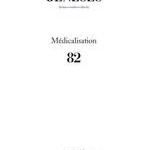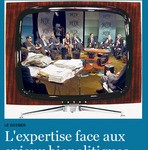Call for Proposals for the International Conference – Bodies in Crisis
The Nordic Network Gender, Body, Health in collaboration with RIKK – Center for Women’s and Gender Research and EDDA – Center of Excellence at the University of Iceland
2-4 November, 2011
University of Iceland, Reykjavik
The Nordic Network Gender, Body, Health is based at the Centre for Gender Research at Uppsala University, Sweden and had its first network meeting in January 2008. With the aim of achieving productive interdisciplinary work on issues concerning gender, body, and health, the network gathers researchers and practitioners from a number of diverse fields such as medicine, comparative literature, philosophy, sociology, anthropology, cultural geography, sports- and health sciences, psychiatry, social psychology, and history of science.
We now invite submissions for the fifth meeting with the network Gender, Body, Health, an international conference under the theme “Bodies in Crisis”. The conference will take place on November 2-4, 2011 at the University of Iceland, Reykjavik, Iceland in conjunction with the 20th Anniversary Conference of RIKK – The Center for Women’s and Gender Research at the University of Iceland.
We welcome submissions for papers, panels, and mini-workshops approaching issues within the overarching theme from a broad range of disciplines and fields of research.
Topics can include, but are not limited to:
• Representations and Discourses of Bodies in Crisis
• Vulnerability and Suffering
• Bodies in Economic Crisis and Poverty
• Trauma and PTSD
• Sexuality and Reproduction in Times of Crisis
• Global Bodies and Bodies in Transition
• Bodily Boundaries and Integrity
• Responsible Bodies and Crises of Responsibility
• Healing and Cathartic Forces of Crisis
One page abstracts are due August 1, 2011. Please submit your abstracts to body@gender.uu.se.


